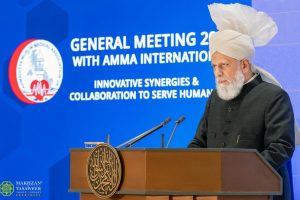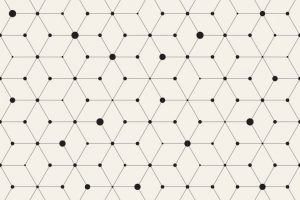
Musa Sattar, London, UK
In the era from eighth to thirteenth centuries known as the Islamic Golden Age, we found that the achievements of Muslims greatly advanced the frontiers of human knowledge. Its extensive reach still manifests all around us in the form of our numeral system, our words like algebra, algorithm, almanac and in the name of the stars etc. Regrettably, most of this goes unnoticed as modern perception of the Islamic world has greatly stifled interest in its rich history. Here, however, our readers will find a different perspective than the one depicted on 24-hour news media and online. As it is important to highlight the legacy of Muslims’ services to intellectual enlightenment that have undoubtedly been recognised in Western society. Hence, for our readers interest this article provides an overview of impressions on the contributions of Islamic scholarship to the body of western knowledge.
For example, King Charles III, in his lecture in 1993 entitled ‘Islam and the West’ said, ‘If there is much misunderstanding in the West about the nature of Islam, there is also much ignorance about the debt our own culture and civilisation owe to the Islamic world…The medieval Islamic world, from central Asia to the shores of the Atlantic, was a world where scholars and men of learning flourished.’[1]
Mathew E. Falagas, Professor of Medicine at Tufts University School of Medicine, Boston, Massachusetts, writes, ‘The contemporary world owes much of its progress in all fields of human intellectual activity, including medicine, to Arabic culture, especially the advancements made during the Golden Age of Arabic-Islamic science (8th to 13th centuries C.E.).’[2]
Shannon Stirone, an American science journalist and editor, who writes about space travel and the human connection to space exploration writes in her article, ‘How Islamic Scholarship Birthed Modern Astronomy’, about Ibn Yunus, the Egyptian Muslim astronomer who found faults in Ptolemy’s (the Greek mathematician) calculations about the movements of the planets and their eccentricities: ‘This discovery by Ibn Yunus and others like Ibn al-Shatir changed the landscape of astronomy forever. The heliocentric model eventually proposed by Copernicus in the 16th century was built on this body of work.’[3]
Constant Mews, director of the Center of Religious Studies at Monash University Australia wrote an article published in Quartz titled, ‘Western Civilization as we Know it Wouldn’t Exist Without Islamic Culture.’ He wrote: ‘Algebra, alchemy, artichoke, alcohol, and apricot all derive from Arabic words which came to the West…Even more fundamental are the Indo-Arabic numerals (0-9), which replaced Roman numerals during the same period and revolutionised our capacity to engage in science and trade…Australia and the West still struggle to acknowledge the contributions of Islamic cultures (whether Arabic speaking, Persian, Ottoman, or others) to civilization.’[4]
Peter E Pormann, Assistant Professor of Classics and Ancient History at the University of Warwick and co-author of the book Medieval Islamic Medicine, about Al-Zahrawi – known as Abulcasis in the west, was a surgeon and scholar who developed and used more than 200 medical instruments, many of which we still use today – said: ‘He was a man of great innovation…We know that he came up with new instruments, such as forceps for the removal of dead foetuses, and even illustrations of medical instruments, which seem to be the first time such illustrations were included in a medical text.’[5]
An article in National Geographic entitled ‘How Early Islamic Science Advanced Medicine’ identifies the contributions of Muslim scientists in the early period of Islam, concluding: ‘Physicians from Islamic countries during the late Middle Ages enjoyed great respect. Their reputation was well deserved, for the study and practice of medicine was then led by Muslim societies across their immense territory, which extended from modern-day southern Spain to Iran.’[6]
Rageh Omaar, a British journalist and writer in the BBC’s documentary, An Islamic History of Europe on 12th century geographer Al-Idrisi, describes: ‘Widely recognised as being the greatest single work of geography in the medieval era, [Al-Idrisi’s book] also included a travel guide and map, surprisingly accurate for 350 years before Columbus. It described England as “gripped in perpetual winter.”…It is an essential ingredient in this Islamic scholarship that helped shape European civilisation.’[7]
Science reporter Dennis Overbye in a New York Times article, mentions the role of the Al-Tusi (Muslim polymath who wrote approximately two hundred treatises on architecture, astronomy, biology, chemistry, theology etc). He writes: ‘Al-Tusi published many great works on astronomy, ethics, mathematics and philosophy, marking him as one of the great intellectuals of his age…Muslims created a society that in the Middle Ages was the scientific centre of the world. The Arabic language was synonymous with learning and science for 500 years, a golden age that can among its credits for the precursors to modern universities…’[8]
‘The Muslim world is too often neglected when discussions turn to science,’ writes freelance journalist Alasdair Soussi. He continues, ‘Harvey’s [scientist and physician of 17th century Europe] great discovery of the so-called greater circulation – or systemic circulation – remains unrivalled, but as the first person to correctly describe the pulmonary circulation, Al-Nafis [who explained the pulmonary blood circulation in 13th century – read more about his work on page 20) deserves his place in history.’[9]
‘The scientific revolution in sixteenth- and seventeenth-century Europe could not have taken place had it not been for the many advances made in the medieval Islamic world in philosophy, medicine, mathematics, chemistry and physics,’ writes Jim al-Khalili, a professor of Physics and Public Engagement in Science at the University of Surrey in his book Pathfinders – The Golden Age of Arabic Science.[10]
Similarly, Carly Fiorina, historian and chief executive officer of Hewlett-Packard Corporation at a meeting in 2006 stated, ‘There was once a civilisation that was the greatest in the world…Its architects designed buildings that defied gravity. Its mathematicians created the algebra and algorithms that would enable the building of computers, and the creation of encryptions. Its doctors examined the human body, and found new cures for disease. Its astronomers looked into the heavens, named the stars, and paved the way for space travel and exploration…the civilisation I’m talking about was the Islamic world from the year 800 to 1600…although we are often unaware of our indebtedness to this other civilisation, its gifts are very much part of our heritage. The technology industry would not exist without the contributions of Arab mathematicians.’[11]
In conclusion, the most important point here is to understand that the pioneering works and great contributions of Muslim intellectuals, philosophers and inventors in the Medieval era have been greatly inspired by the Holy Qur’an and Islamic teachings. The Holy Prophet (sa) emphasised that the quest for knowledge is compulsory upon every Muslim man and woman. The study of the Holy Qur’an provokes imagination and thought by challenging humans to investigate and verify its claims. This inspired the early Muslims to achieve great heights in science, medicine, mathematics, astronomy, chemistry, philosophy, art and architecture. We witness that Muslim scientists and inventors played a fundamental role in advancing knowledge and developing technologies that transformed the world and still remain in use today. Their research and discoveries continue to be the basis for modern science.
In the words of the Worldwide Head of the Ahmadiyya Muslim Community, Hazrat Mirza Masroor Ahmad (aba), ‘Islam unified science, theology, and philosophy. Hence, Muslims utilised their God-given talents and faculties, whilst seeking the help of Allah the Almighty and reflecting upon His creation and as a result, have been recognised through history and continue to be acknowledged and respected today.’[12]
About the Author: Musa Sattar has an MSc in Pharmaceutical Analysis from Kingston University and is also serving as the Assistant Manager of The Review of Religions and the Deputy Editor of the Science & Religion section.
ENDNOTES
[1] King Charles III, “A Speech By HRH The Prince Of Wales Titled ‘Islam And The West’ At The Oxford Centre For Islamic Studies, The Sheldonian Theatre, Oxford”. Princeofwales.gov.uk. https://www.princeofwales.gov.uk/speech/speech-hrh-prince-wales-titled-islam-and-west-oxford-centre-islamic-studies-sheldonian.
[2] Matthew E. Falagas, Zarkadoulia Effie A., and George Samonis. “Arab Science In The Golden Age (750–1258 C.E.) And Today”. The FASEB Journal 20 (10): 2006. 1581-1586. doi:10.1096/fj.06-0803ufm.
[3] Shannon Stirone, “How Islamic Scholarship Birthed Modern Astronomy”. astronomy.com. February 2017. Accessed Septemeber, 2022. https://astronomy.com/news/2017/02/muslim-contributions-to-astronomy.
[4] Constant Mews, 2022. “Western Civilization As We Know It Wouldn’t Exist Without Islamic Culture”. Quartz. July, 2019. Accessed September, 2022. https://qz.com/1668371/all-the-ways-islamic-culture-shaped-the-west-as-we-know-it/.
[5] Peter E Pormann and Emilie Savage-Smith, Medieval Islamic Medicine (Washington D.C.: Georgetown University Press, 2007).
[6] “How Early Islamic Science Advanced Medicine”. History. Accessed September, 2022. https://www.nationalgeographic.com/history/history-magazine/article/muslim-medicine-scientific-discovery-islam.
[7] Salim T. S. Hassani, 1001 Inventions – The Enduring Legacy Of Muslim Civilization. 3rd ed. Washington, D.C.: National Geographic Society.
[8] Dennis Overbye, “How Islam Won, And Lost, The Lead In Science”. nytimes.com. October, 2001, Accessed September, 2022. https://www.nytimes.com/2001/10/30/science/how-islam-won-and-lost-the-lead-in-science.html.
[9] Alasdir Soussi, “Time to acknowledge debt science in West owes to Islamic world,” The Irish Times. February, 2009. Accessed September, 2022. https://www.irishtimes.com/opinion/time-to-acknowledge-debt-science-in-west-owes-to-islamic-world-1.710015.
[10] Jim Al-Khalili, Pathfinders – The Golden Age of Arabic Science. (New York: Penguin Press, 2012)
[11] Tim Brown, “Carly Fiorina: Islamic Civilization Was ‘Greatest In The World’ – The Washington Standard”. The Washington Standard. August, 2015. Accessed September, 2022. https://thewashingtonstandard.com/carly-fiorina-islamic-civilization-was-greatest-in-the-world/.
[12] Hazrat Mirza Masroor Ahmad (aba), “Ahmadi Muslim Researchers – Restoring Islam’s Golden Age”. The Review Of Religions. December 2019. Accessed September, 2022. https://rorenglish.wpengine.com/19379/ahmadi-muslim-researchers-restoring-islams-golden-age/.




Add Comment